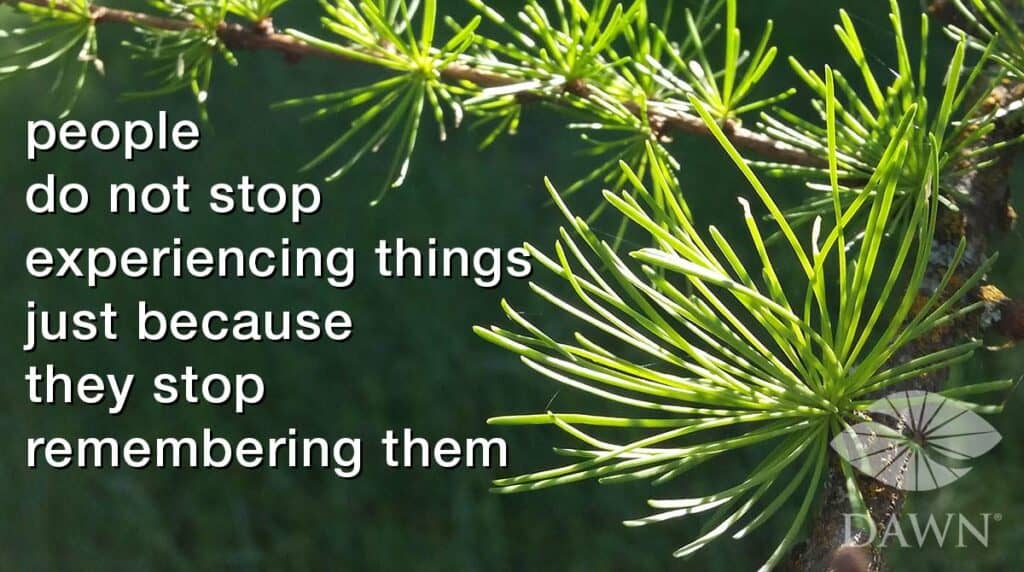
Back to your DAWN Dementia Roadmap to caring for someone with dementia at home
Shaping Moods in Dementia
We can affect the moods of those with dementia
When we are with people who have dementia or Alzheimer’s, we should take responsibility for their moods. Actually, whether we realize it or not, we are already creating their moods because changing moods requires rational thought and memory. People with dementia are missing both, so whatever mood we bring into their presence will be the mood they begin to feel.
Think about how you manage your own moods. If you are feeling sad, you might use memory to recall happier times. If you are feeling frustrated or insulted by someone’s behavior, you might draw to mind reasons for why they behaved that way or analyze why you should be patient with them. You could plan to give yourself a treat later or distract yourself with thoughts of an upcoming vacation.
People experiencing dementia can’t manage their own moods
People with dementia don’t have these tools at their disposal. As a result, negative moods from failure at tasks or embarrassment in conversations are predominant and persistent. Studies have shown that moods last longer for people with dementia and that the further into dementia the person is, the longer the moods last.

There’s another complication. With intuitive thought, people with dementia continue to be able to read the moods and feelings of those around them. Yet, without rational thought they are unable to analyze why their companions might be experiencing negative moods or feelings.
Mary’s story: an example of mood mismanagement
One of our clients, Mary, had two DAWN caregivers in her life as well as a daughter who lived nearby. All three women were kind, empathetic and very much attached to Mary. One day, one caregiver called me saying that our client was having trouble with back pain and needed an overnight caregiver. Lately, Mary had been complaining of pain almost every time this caregiver was with her and, when this caregiver prepared to leave, Mary became more anxious and begged her to stay. I told the caregiver that I would begin a review of our care plan.
When I spoke with Mary’s daughter, she was mystified. I checked with the other caregiver and she was surprised, too. When they were with Mary, Mary had no trouble with pain and was unconcerned about being alone when they left.
Our client was the victim of unintentional mood mismanagement. My empathetic caregiver was communicating concern and worry to Mary, particularly as her shifts drew to a close. Mary easily read her concern and, without analysis, assumed there was something in the present to be concerned and worried about. Once she was anxious, her aches and pains became more pronounced and she didn’t want to be alone.
I have watched loving and concerned family members do the same thing. They come to visit their loved ones and bring their own sadness, guilt and loss. We watch their loved ones absorb their pain and retain it after they leave—until they leave and we fill their presence with joy and love again.

People who have dementia have no skills to analyze the reasons for the moods we bring to them. Whatever we bring into their presence will be absorbed and mirrored back to us. We should use our own rational thought skills to put aside any negative feelings we might have about their situation and come to them with our joy and love instead.
Back to your DAWN Dementia Roadmap to caring for someone with dementia at home

